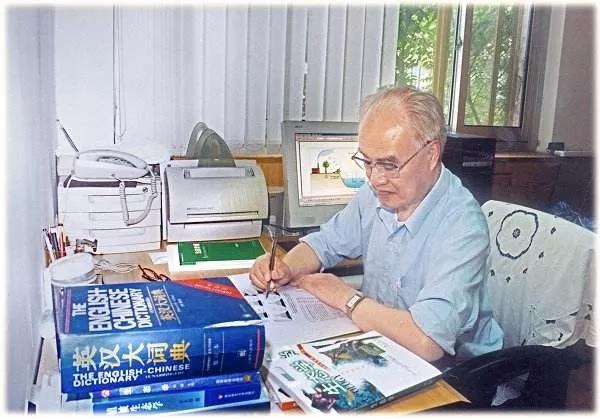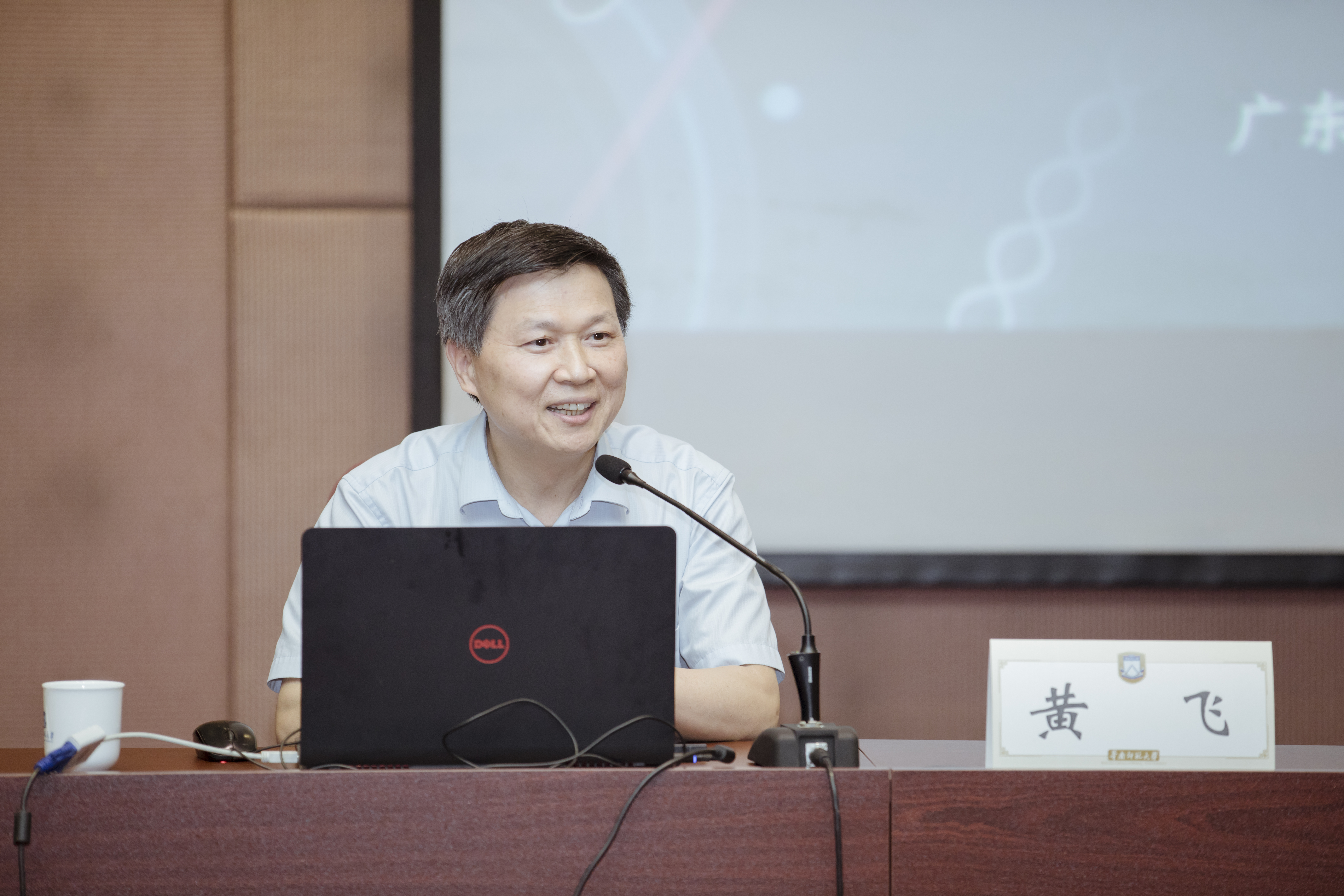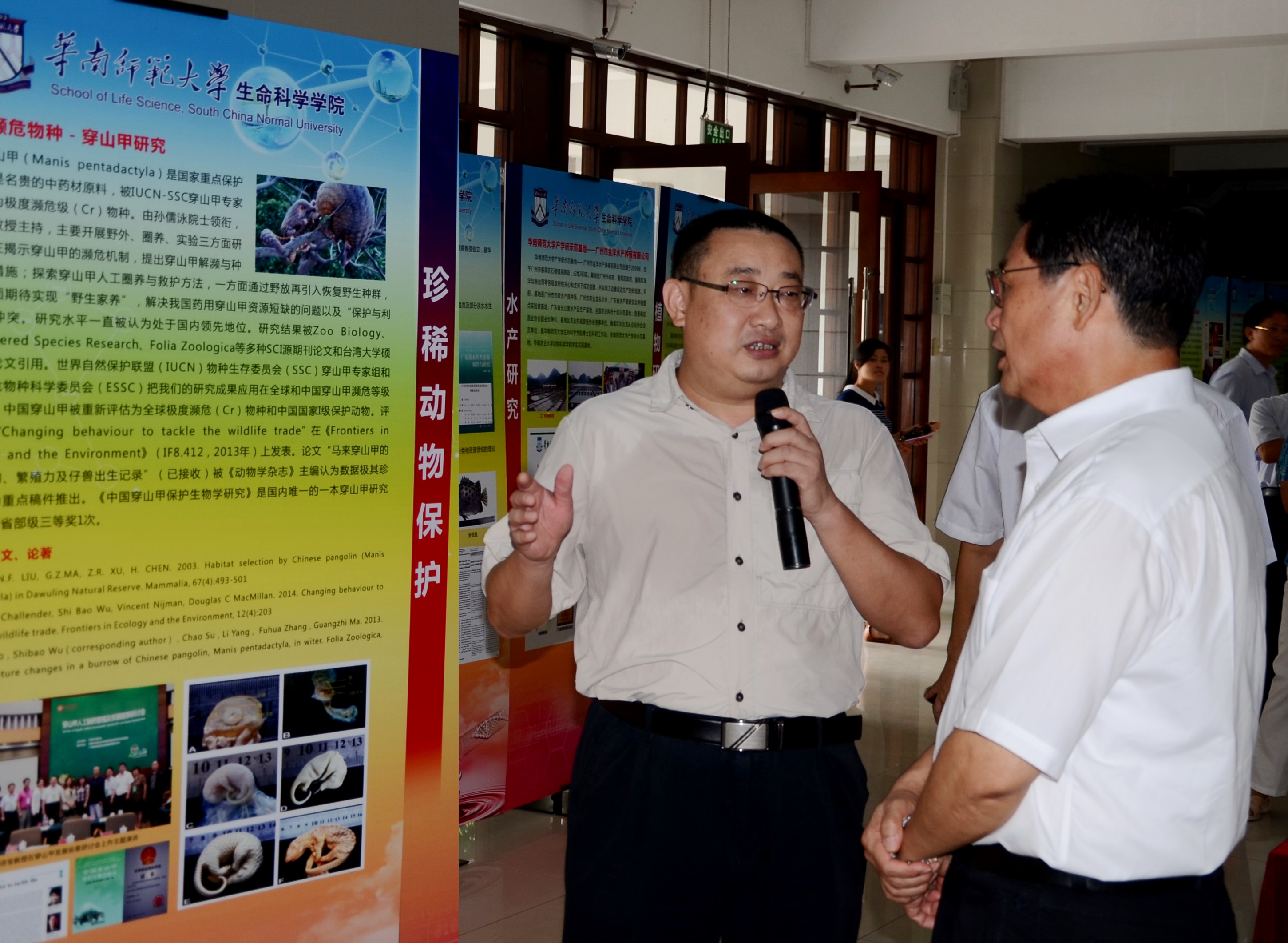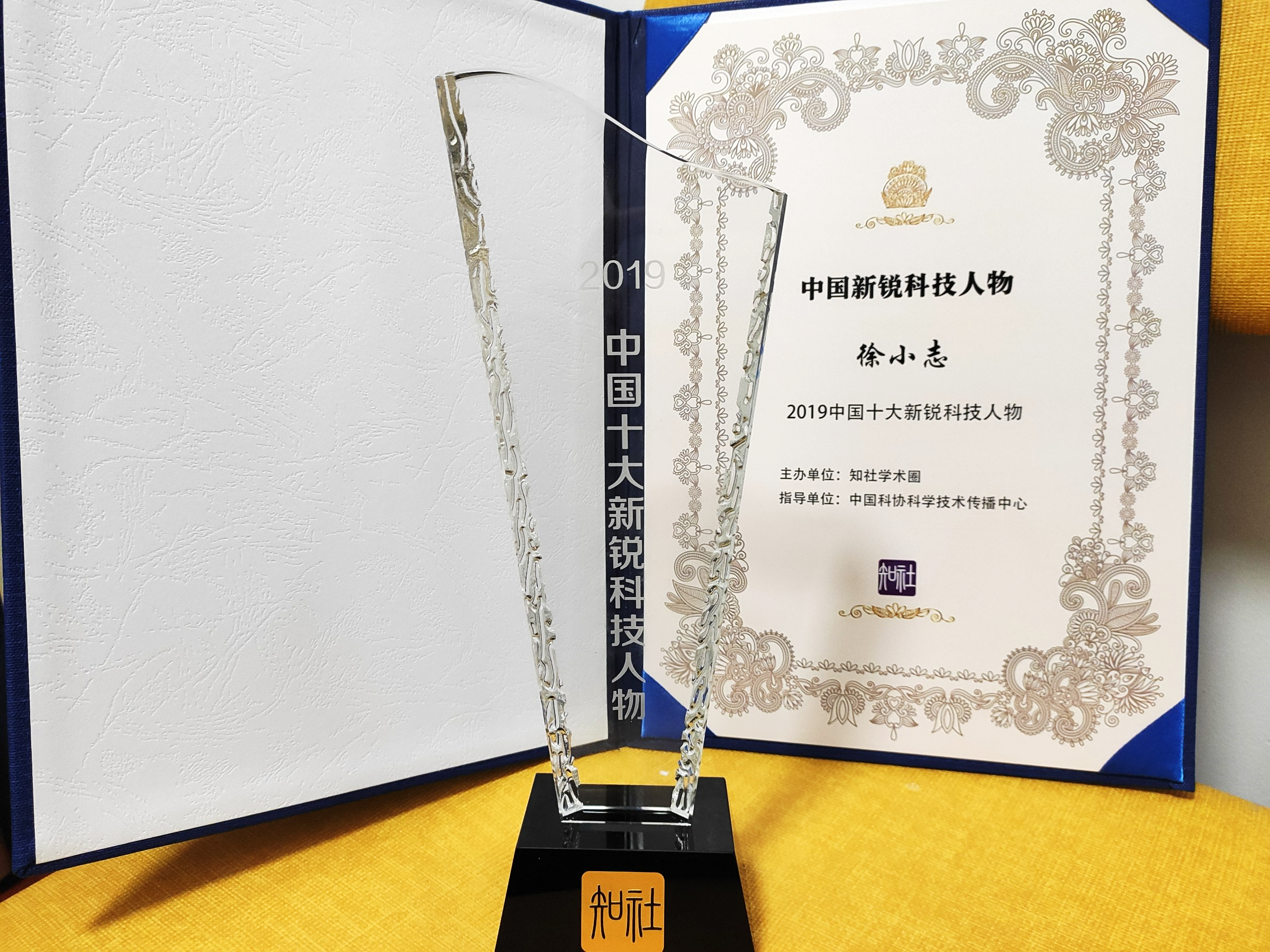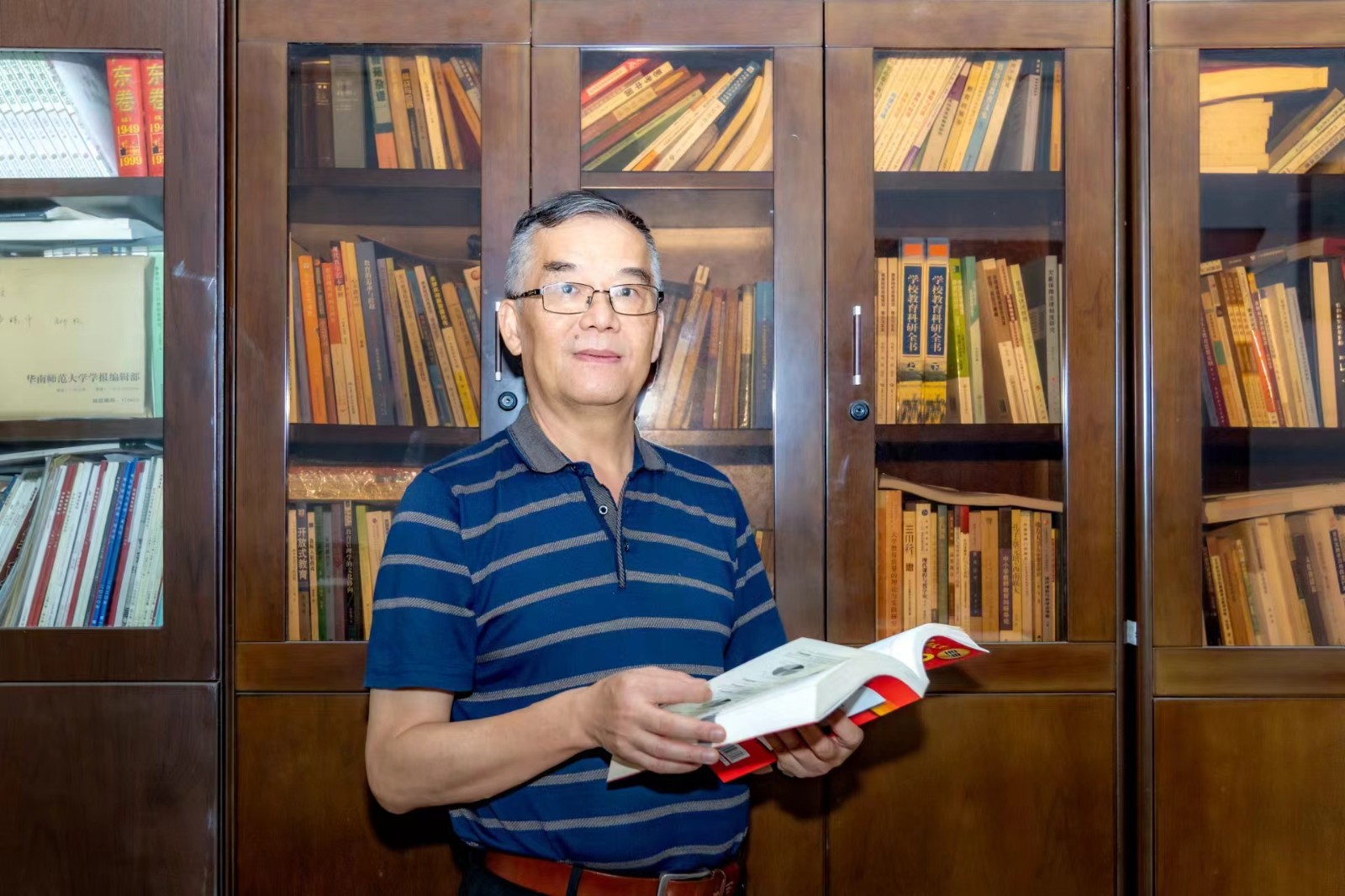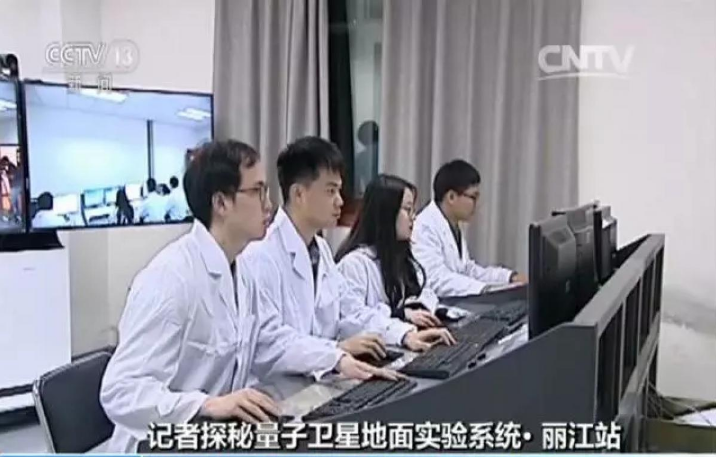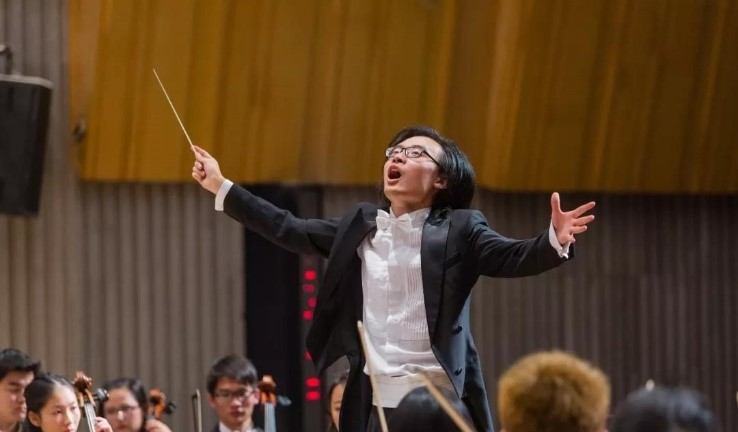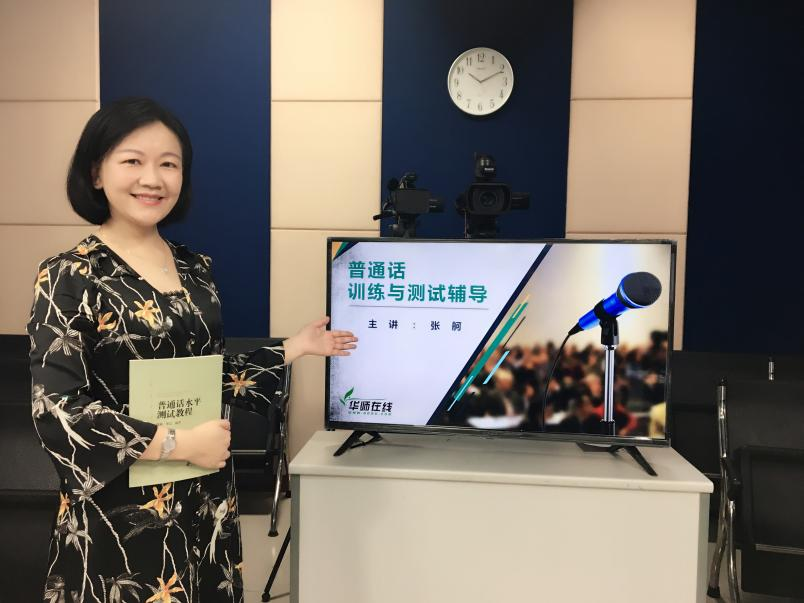
Likes
On May 10, a conference was held in Beijing to honour organizations and individuals for their outstanding contributions to the promotion of Mandarin. Zhang Ge, a professor of the School of Chinese Language and Literature of SCNU, was awarded as an "Outstanding Individual" for her remarkable performance in promoting the use of Standard Chinese, i.e. Mandarin.
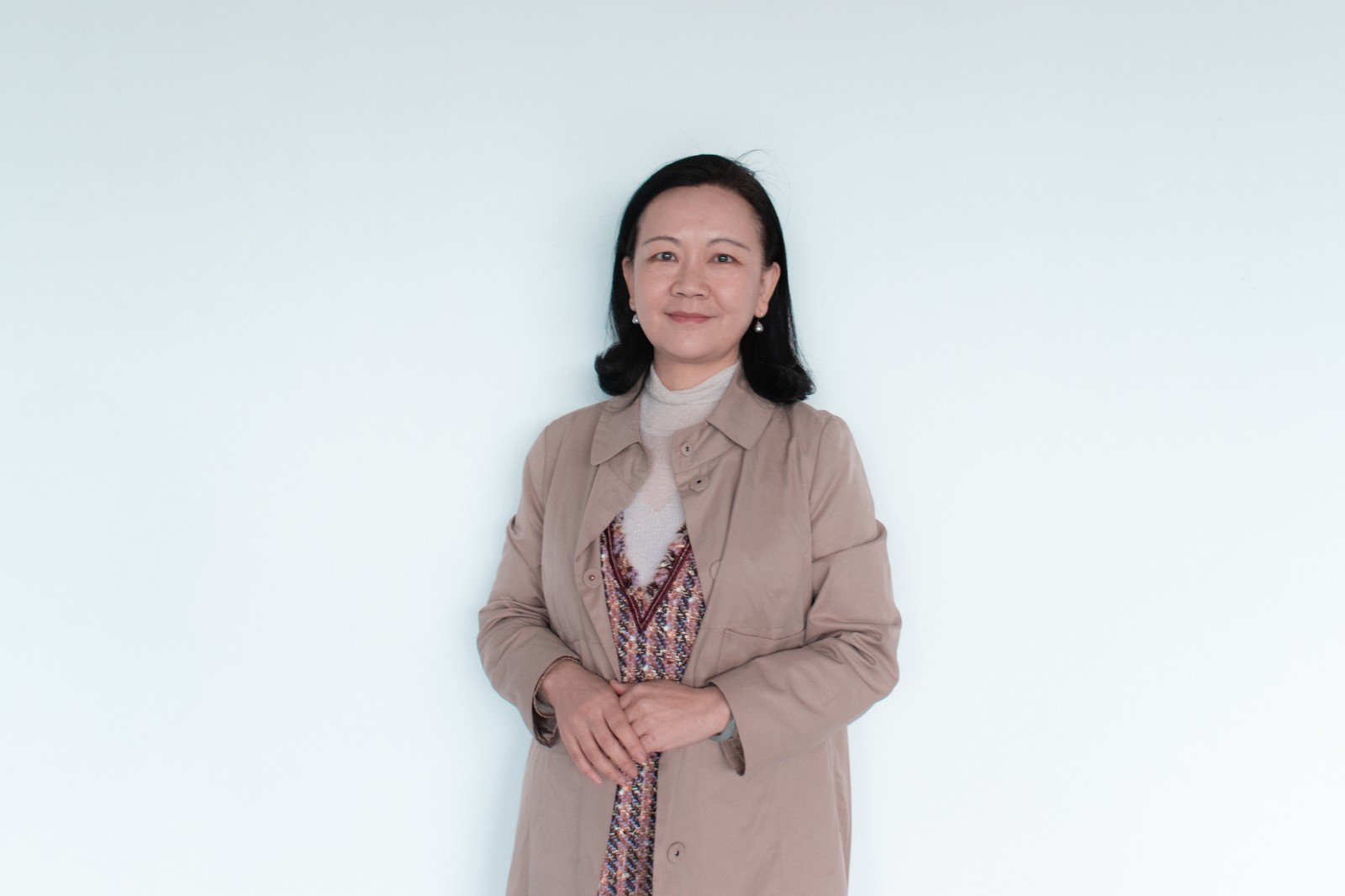
Zhang Ge, professor of the School of Chinese Language and Literature of SCNU
Having obtained both her bachelor’s and master degrees at SCNU, Professor Zhang has a great passion for modern Chinese language, Chinese international education, and language arts education. She has been devoted to teaching, promoting, and spreading the art of Chinese language for decades.
Zhang and Mandarin
Born in an intellectual family, Professor Zhang has had great sensitivity toward language since she was a child. While going to school, she moved to Guangdong province from Yunnan. Different geographical environments have equipped her with profound insights into the differences in languages.
When she was at college, she had a mission which was to be the Chinese teacher for the international students at her school. At that time, most Chinese textbooks were extracted from classical works, which proved challenging for international students to understand. To solve this problem, Professor Zhang used practical teaching methods to help the students understand the language better: using newspapers as the learning materials, dubbing the lyrics of popular songs and so on. In this special experience, she gradually figured out how to teach a language.
At the same time, as China’s Mandarin promotion work was being carried out, Professor Zhang decided to align her career with this nationwide effort, which later became her lifetime career. "I was influenced by my family, my school, my country, and the society," she summarized, "and that's how I got to where I am now."

Zhang Ge teaches an on-line lesson in Mandarin language learning and testing.
Zhang and Mandarin Promotion
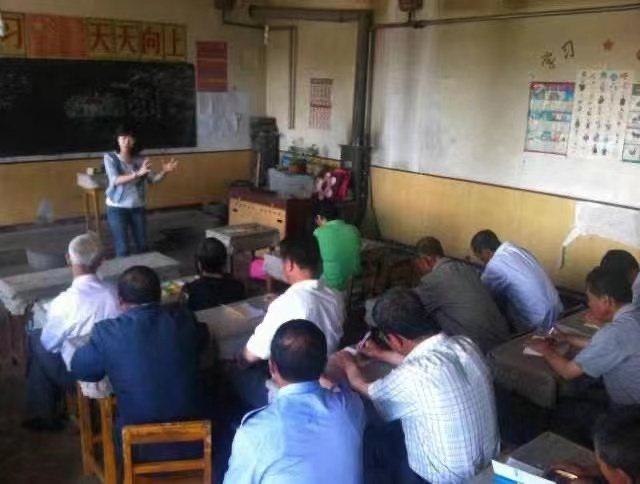
Zhang Ge teaches Mandarin in a remote region.
In the course of promoting Mandarin, she encountered lots of difficulties. In Hong Kong, Zhang Ge was confronted with the dilemma of whether to teach Mandarin using Cantonese, at which she was not good. In order to ensure the quality of teaching, she transcribed Cantonese using the international phonetic alphabet, and practiced reading it aloud before class. She practiced it all the time, even when walking in the city.
Professor Zhang takes inspiration from the idea that "If a teacher has a good command of Mandarin, students will have a better understanding of the knowledge. It will make a significant impact on the development of Chinese education." With this firm faith, Zhang has kept moving forward on the road of promoting Mandarin despite many the obstacles.

Zhang Ge participates in a Mandarin teaching seminar.
It is much more challenging to promote Mandarin abroad, especially because of some foreign students’ misunderstandings and prejudice towards China. During her time teaching at Jagiellonian University in Poland, she was shocked by her students’ wrong impression of China.
Considering the idea that each "Chinese teacher represents China’s image", Professor Zhang decided to reverse foreign student’ misconceptions of China. She contacted many of her former students and the Chinese embassy in Poland, collected photos from various regions in China, and then organized an exhibition of photos of "Modern China".
At the exhibition, a student pointed to a picture of Tianhe North Road in Guangzhou and said it looked like "Manhattan." Professor Zhang told them with humor, "That is China, it’s near my home. You’re welcome to visit and experience it for yourself!'!"
Since then, many "colourful figures" appeared in Zhang Ge’s classroom: sailors going to sea, parents with their children…… They came to Zhang’s classroom one after another to learn and taste the charm of Chinese language.
"Learning a language requires lasting vigor. As long as I ignite a spark in their hearts, my goal has basically been achieved." Professor Zhang’s determination and sheer tenacity, as well as her warm heart, are the key to her success in promoting Mandarin at home and abroad.
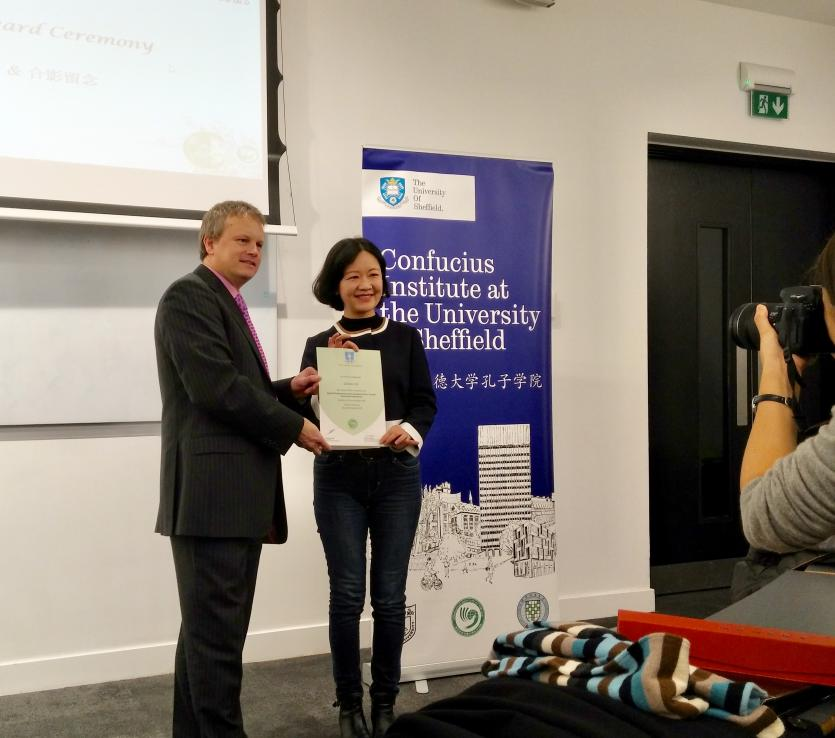
Zhang Ge at the University of Sheffield as a visiting scholar.
Zhang and SCNU
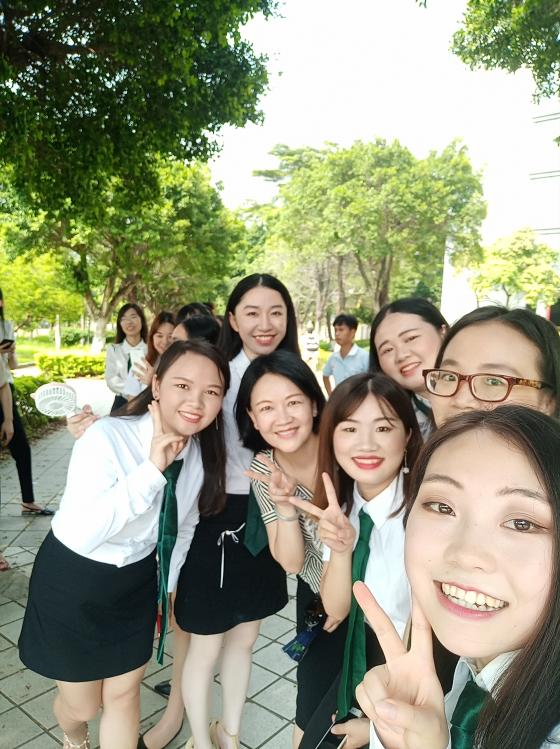
Zhang Ge (in the middle) with her students.
Ever since she was a middle school student, Professor Zhang has lived on the campus of SCNU for more than 30 years, excluding the two years of teaching abroad. She has grown, enriched, and blossomed in SCNU, which has become her second home.
Nowadays, as a techer at SCNU, she insists on instilling teaching with joy, constantly learning new teaching concepts, and pursuing innovative teaching methods. She always emphasizes, "Linguistic research must be updated to align with the ever-evolving time."
In her class, the most distinctive feature is her comparative teaching method. By comparing Mandarin with various Chinese dialects, modern Chinese and ancient Chinese, Chinese and foreign languages, students can realize the charm of language learning keenly.
At the same time, Professor Zhang also serves as the deputy director of the National Language Promotion Base at SCNU, where she is responsible for teaching training. The National Language Promotion Base of SCNU is one of the first nationally approved promotion bases in Guangdong Province. It has organized many Mandarin promotion projects and made outstanding contributions over the years.
Zhang and life
 Zhang Ge on a trip.
Zhang Ge on a trip.
Besides her work, Professor Zhang enjoys reading and travelling. She has travelled to more than 20 countries and realized what is life during these trips.
"Just get on the train and go with it." Pursuing freedom and relaxation on her trips, Zhang Ge tends to veer away from her original plans and follow her heart. She confessed that she likes to travel at her own speed, experience the local culture, and savour the liberation of her soul.
She also encourages young students,"Hold onto your dream and strive for it, be innovative and live up to your mission."
Source: SCNU News Center
Translated by Liao Zhanting, Zeng Wenting
Proofread by Edwin Baak
Edited by Wang Yingmin
What to read next:
